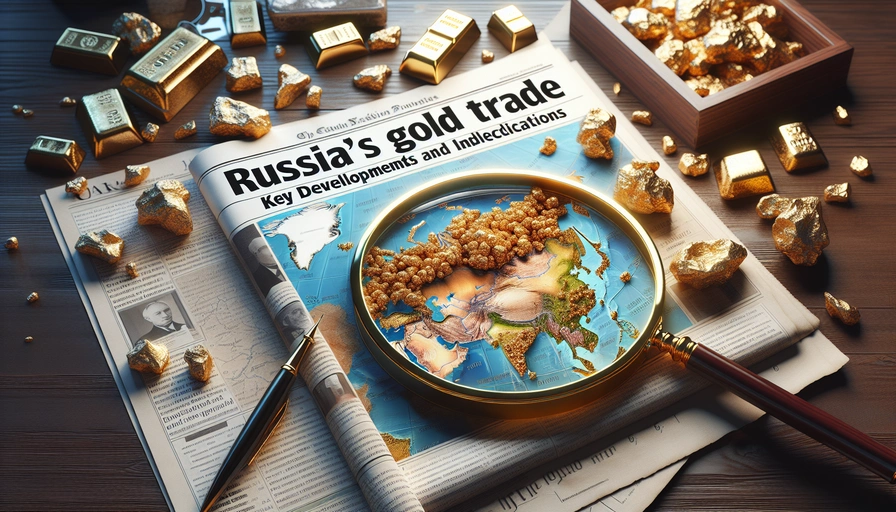The gold trade in Russia has been a topic of significant interest and concern, particularly in light of recent geopolitical and economic developments. Here, we provide an overview of the latest news and key points related to Russia’s gold trade.
- Iran’s EAEU Exports Surge 20%, Hitting $2 Billion: Iran’s exports to the Eurasian Economic Union (EAEU), which includes Russia, increased by 20% in the last Iranian calendar year, reaching over $2.0 billion USD. Russia was the largest recipient, with $1.121 billion USD worth of goods. This highlights the growing economic ties between Iran and Russia, which could have implications for the gold trade as both countries seek to strengthen their economic cooperation.
-
US-Iran Talks Spark Gold Market Plunge: The initiation of negotiations between Iran and the US has caused significant price drops in gold, coins, and currency markets. On Wednesday, the US dollar decreased by 5.7%, and gold prices fell by 6.2%. Analysts predict that if the negotiations are successful, the price of 18-karat gold may fall further. This development is crucial as it indicates how geopolitical negotiations can impact gold prices, which is a significant aspect of Russia’s gold trade.
-
Iran, Uzbekistan to Sign Preferential Trade Agreement Next Month: A preferential trade agreement between Iran and Uzbekistan, set to be signed next month, aims to increase bilateral trade. This agreement could influence the gold trade dynamics in the region, including Russia, as it seeks to expand its economic influence and trade partnerships.
-
Iran’s Non-Oil Exports to Pakistan Reach $2.4B USD: Iran’s non-oil trade with neighboring countries, including Russia, increased by 21%, reaching $74.3 billion USD. This surge in trade could have a ripple effect on the gold trade, as increased economic activity often leads to higher demand for gold as a safe-haven asset.
-
Iran Condemns US Oil Sanctions as Baseless: Iranian Foreign Minister Abbas Araghchi condemned US sanctions on Iran’s oil industry, calling them baseless. This stance reflects the broader geopolitical tensions that can affect global markets, including the gold trade. Russia, as a major player in the global energy market, is closely watching these developments.
-
Iran’s Massive Hydrocarbon Reserves: Over 1.2 Trillion Barrels of Oil: Iran’s significant hydrocarbon reserves and plans to increase oil production could impact global energy markets and, by extension, the gold trade. As energy prices fluctuate, so too does the demand for gold, which is often seen as a hedge against inflation and economic instability.
In summary, the gold trade in Russia is influenced by a myriad of factors, including geopolitical negotiations, regional trade agreements, and global economic trends. The recent developments in Iran’s trade relations, US-Iran negotiations, and regional economic activities all play a crucial role in shaping the dynamics of Russia’s gold trade. As these events unfold, stakeholders in the gold market will need to stay informed and adapt to the changing landscape.

